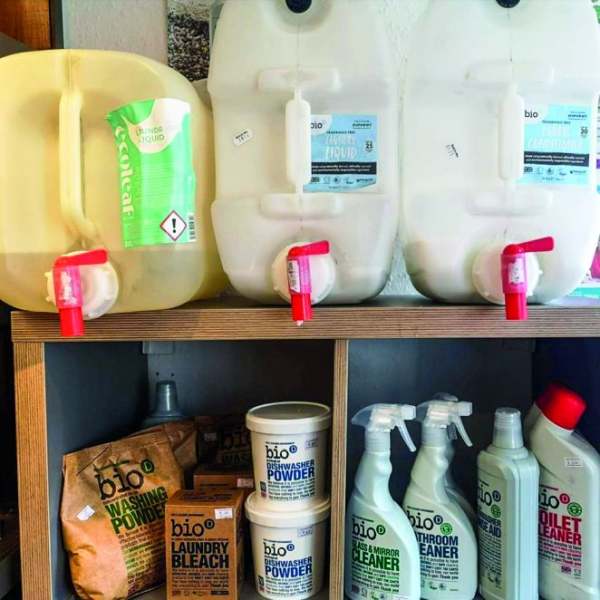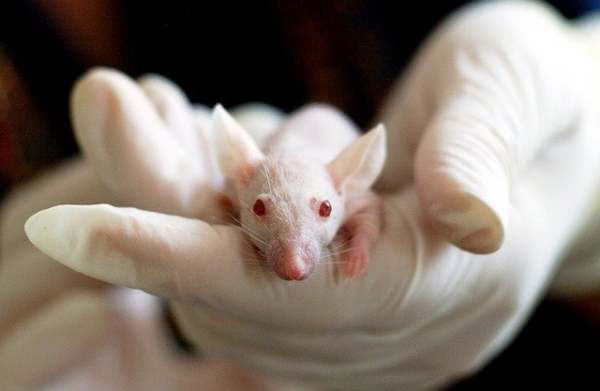The top five eco and ethical issues with household detergents are:
- plastic packaging
- hidden ingredients such as microplastics, polymers and surfactants
- palm oil
- animal testing
- carbon emissions
We look at each one in more detail below.

During the research into our guide to ethical cleaning products, several issues kept coming up.
Read on to find out whether your washing up liquid, laundry cleaner or dishwasher detergent is squeaky clean or if it contains microplastics, polymers or ingredients which have been tested on animals.
The top five eco and ethical issues with household detergents are:
We look at each one in more detail below.

Of all the ethical issues surrounding household cleaning products, the most positive development over the last few years has been in the area of plastic packaging. Progressive companies are responding with plastic-free or plastic-lite household cleaning solutions.
Although plastic bottles are now widely collected for recycling in the UK, recent revelations from Greenpeace about UK plastic recycling ending up in incinerators or being dumped abroad adds to the argument that reduction and reuse are the only sensible ways forward.
Many companies, including mainstream ones, have started to increase the recycled plastic content of their bottles and packaging. Some companies are even using plant-based plastic. But whilst both of these may be better than using virgin plastic, the more sustainable solution is to produce less single-use plastic, full stop.
Companies and consumers need to prioritise refilling and reusing over recycling.
The old adage of Reduce, Reuse, Recycle needs to change to Refuse, Reduce, Reuse and Refill. Only when those options are exhausted opt for Recycle.
For cleaning products, we noted three main innovations for conscious consumers:
In 2020 we began rating companies on their policies on micro and liquid plastics or polymers, after a report was
released by Codecheck about hidden polymers in cosmetics. We are now applying this same rating to companies making household cleaning products.
Ruta Almedom at Codecheck told us: “In the EU and UK, surfactants used in cleaning products have to be biodegradable. Interestingly all other substances (such as liquid polymers and microplastic) which are not biodegradable, which are even persistent, do not fall under this rule. And there is no intention yet to implement a rule for those. [Polymers’] job is often to merely make a detergent look more opaque or milky, or even just as a ‘filling’ or bulking agent which makes the product look more than it really is.”
*NB since our research and magazine issue 191 was published, Miniml have decided to discontinue their products which contained polymers and reformulate, so we have updated the web content and ratings to reflect this.
See also our feature on the microfibres that can be released when you wash your clothes.
‘Surface-active agents’ (surfactants) are the main active ingredient in detergents. They work by keeping dirt suspended in the water. Surfactants can be made from plant oils such as coconut oil, or sugar, or can be synthesised from waste materials from the petroleum industry.
EU law requires that surfactants used in domestic detergents must be aerobically biodegradable (it will biodegrade if oxygen is present) and break down by 60% within 28 days.
The main surfactant used by the detergent industry is LAS (Linear Alkylbenzene Sulfonate) which is derived from crude oil and is ‘ultimately biodegradable’ but not ‘anaerobically biodegradable’ (i.e., it will not biodegrade
unless oxygen is present). The alternative surfactants used by companies such as Bio-D are plant-based and ‘readily’ biodegradable.
We have systematically rated companies on their palm oil use since 2009.
By 2016, palm oil had become such a big public concern that we created a column on our tables just for that. 400 global companies made commitments, in 2010, to become deforestation-free by 2020, but that hasn’t happened.
This year we’ve made the rating harsher on large companies, so they have to do a lot more than just having certified ingredients in order to get a Best rating.
The upshot of this is no large companies in these guides were able to score a best rating for palm oil. The two
that came closest were Procter & Gamble, and Unilever, as they listed all the mills they bought from, but both lists contained some of the most disreputable producers. Most companies in these guides are much smaller and the requirements for a best rating are therefore simpler.
Two were palm oil free (Greenscents, Planet Detox) with Greenscents actually being certified as palm oil free, by the International Palm Oil Free Certification Trademark POFCAP.
Several others (Bio D, Ecovibe, Faith in Nature, Fill Refill, Miniml, SESI, Sodasan, and Splosh) scored our best rating for stating that all of their palm ingredients, including derivatives, were certified by the RSPO.
Several small or medium companies scored a worst rating if they had no information on palm-based ingredients, or if they only seemed to use certified palm in one brand but not another, or if they talked about palm oil but not derivatives. These brands were: Astonish, ATTITUDE, Bentley Organic, Easy, ecoLiving, Ecozone, Prism, and Smol.
For more information on palm oil and what ingredients to look out for, see our palm oil guide.

Although the testing of ‘finished’ household products on animals has been banned in the EU since 2015, the testing of ingredients is still allowed.
We have recently introduced an exemption for small companies so they don’t have to have a fixed cut-off date (FCO) to get a best rating. A FCO is a specific date, chosen by the company, from which none of its ingredients have been tested on animals. The exemption was given because creating an FCO can require resources that some smaller organisations may not have. Now a small company can get a best rating if it:
Small companies can also score a middle rating if they have a statement against animal testing (just saying
‘cruelty-free’ isn’t considered explicit enough) or are certified by an animal rights organisation.
The following brands scored best ratings for Animal Testing: Astonish, ATTITUDE, Bio D, ecoleaf, Ecozone, Faith in Nature, Fill Refill, Greenscents, Miniml, Planet Detox, SESI, Smol and Sodasan.
The strongest were companies whose entire product range was assured by one of the following certification schemes:
Keep an eye out for these certification names and logos when shopping.
Brands whose entire range is certified were: Astonish, ATTITUDE, Bio D, ecoleaf, Ecozone, Faith in Nature, Fill Refill, Greenscents, Smol and Sodasan.
We have an introductory article to animal testing policies, and one on certification schemes for more information.
We expect companies to be taking meaningful steps to address their key emissions; to be reporting on emissions including those in their supply chain; and to have set emission reduction targets in line with international climate agreements. Small companies could score a best rating if they showed an understanding of their main climate impacts and explicitly discussed ways to reduce them.
Since the last guide to household cleaning products, we have introduced a new Carbon Management and Reporting rating which appears in the Climate Change column on the score tables.
In these guides Bio-D, Faith in Nature, Fill Refill, Miniml, Reckitt Benkiser, Procter & Gamble, SESI, Smol, Sodasan, Splosh, and Unilever scored best ratings for Carbon Management and Reporting.
Astonish, Easy, ecoleaf, Ecover, Method, McBride (Surcare), and Sonett all scored worst ratings.
There are loads of groups campaigning against plastic use and waste but here a noteworthy few:
All the information and inspiration you need to join thousands of others and revolutionise the way you shop, save and live. Full online access to our unique shopping guides, ethical rankings and company profiles. The essential ethical print magazine.
